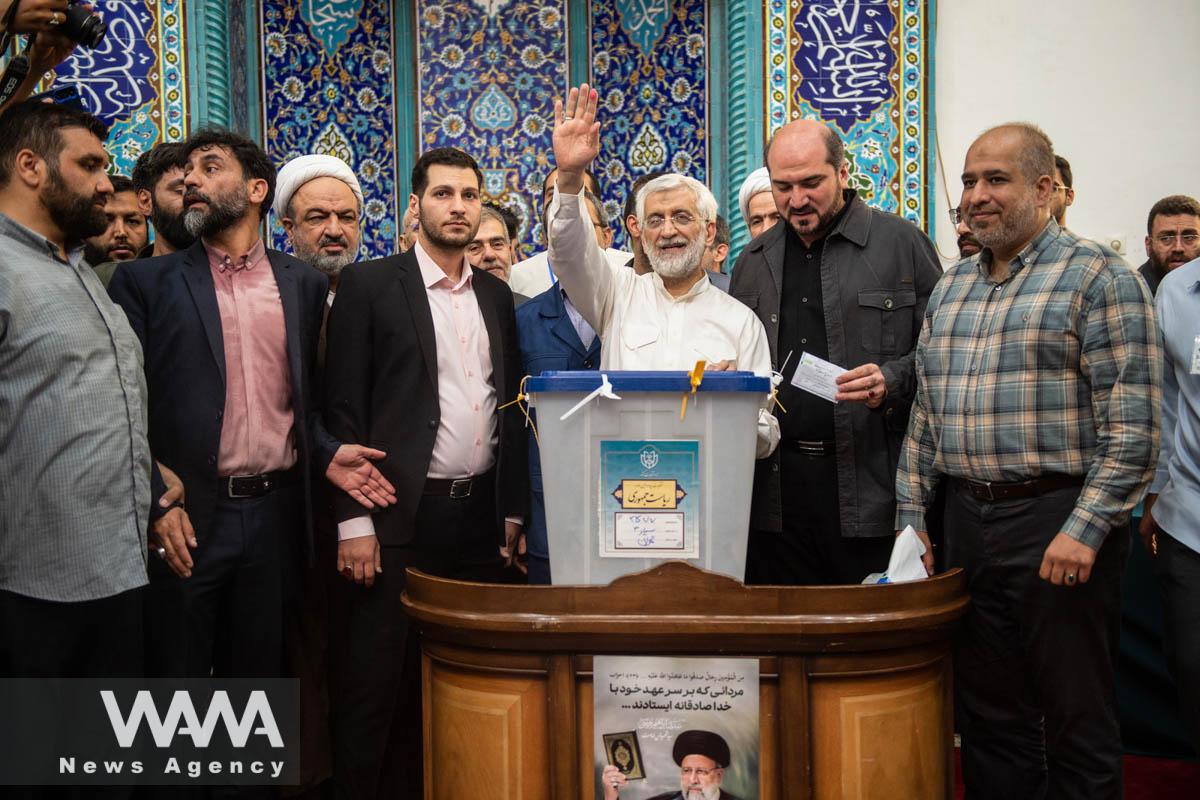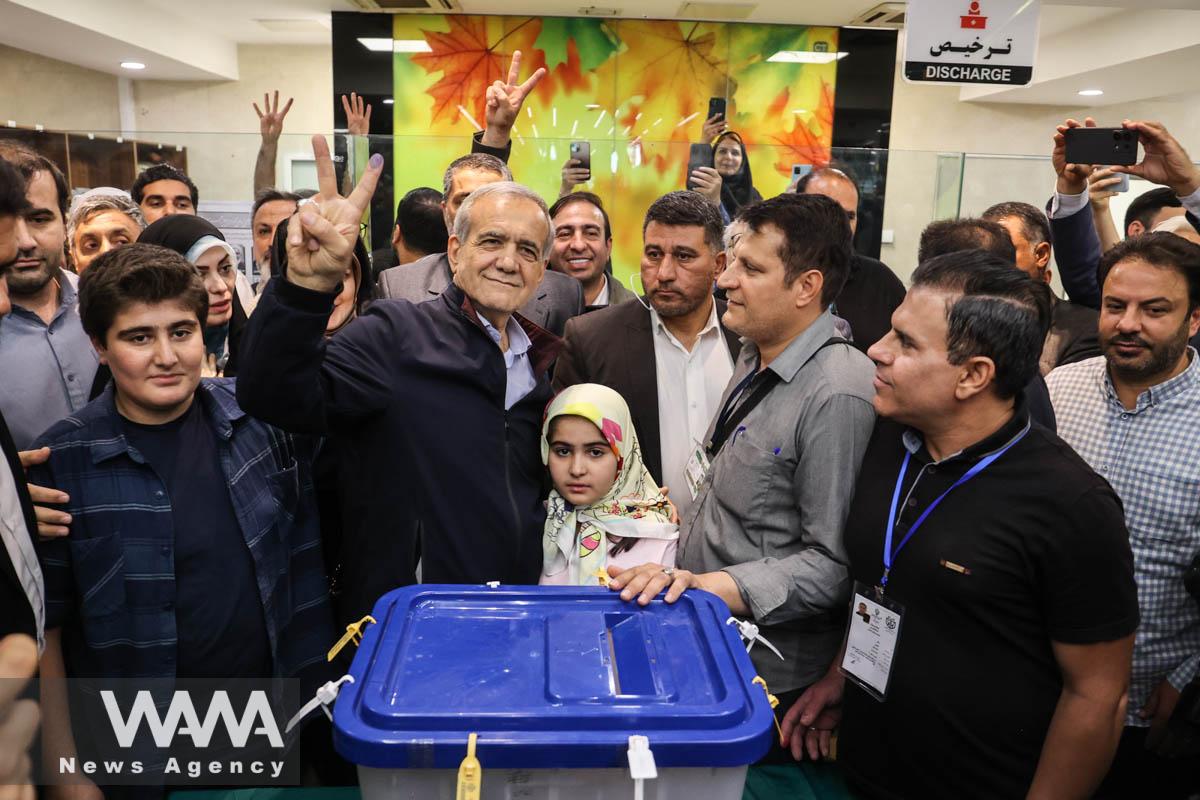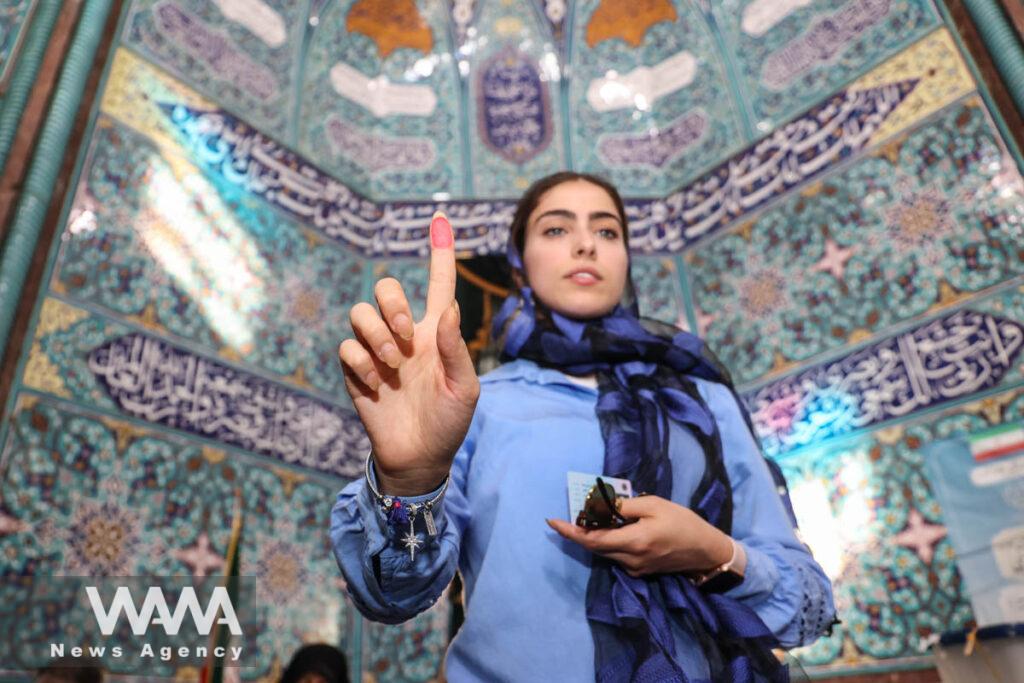Iran’s Election Unexpected Twists and High Abstention
WANA (JUNE 30) – The July 2024 election in Iran was a pivotal moment, highlighting important political and social dynamics. Several key points emerged from this election that demand our full attention.
The combined votes for Jalili and Qalibaf in this election, exceeding 52%, cast a significant shadow over the outcome. One might have emerged victorious if these two candidates had formed a coalition. However, under the current circumstances, not all of Qalibaf’s votes will transfer to Jalili, and there is a likelihood that the undecided segment of the population might become active in the second round to prevent Jalili from becoming president.
The Guardian Council’s role in vetting candidates was crucial in this election. The vetting process favored Massoud Pezeshkian, ultimately leading to his victory. This process demonstrates that supervisory bodies’ qualifications review and decisions can significantly impact election outcomes, emphasizing the importance of transparency and fairness in electoral processes.
The use of cover candidates, intended to support the main candidate, did not have a positive impact and even resulted in wasted resources and time. Instead of strengthening the main candidate’s position, this strategy gave competitors more opportunities to garner support and present themselves as serious contenders.
This experience shows that electoral strategy must be designed and implemented more carefully to avoid wasting resources and opportunities.

Presidential candidate Saeed Jalili votes at a polling station in a snap presidential election to choose a successor to Ebrahim Raisi following his death in a helicopter crash, in Tehran, Iran June 28, 2024. Stringer/WANA (West Asia News Agency) via REUTERS ATTENTION EDITORS – THIS PICTURE WAS PROVIDED BY A THIRD PARTY
Another notable point was the high level of election boycotts. Approximately 60% of the population did not participate in the election, and with the inclusion of invalid votes, this figure reached 70%. This indicates a lack of participation from most of society in the electoral process and requires thorough examination.
This high level of non-participation may stem from general dissatisfaction with the current situation, distrust in the electoral processes, or a sense of the ineffectiveness of voting. To enhance public participation, trust in the electoral system must be increased, and necessary reforms should be implemented.
The results of this election demonstrated that electoral processes are not always predictable and can lead to unexpected outcomes. This underscores the importance of comprehensive, accurate analyses and flexibility in responding to sudden changes. Politicians and analysts must always be prepared to face various scenarios and adopt appropriate strategies for each situation.
Political responsibility and the ability to choose between national and group interests are essential issues that need attention in the future. Currently, many politicians focus on group and factional interests rather than national interests, which can be detrimental to the country.
Concerns about succession crises are also increasing due to such attitudes and behaviors. To address these issues, the country’s political culture needs to change, prioritizing responsibility and national interests.

Presidential candidate Masoud Pezeshkian votes at a polling station in a snap presidential election to choose a successor to Ebrahim Raisi following his death in a helicopter crash, in Tehran, Iran June 28, 2024.Majid Asgaripour/WANA (West Asia News Agency)
Public dissatisfaction with social restrictions and the issue of hijab also influenced the election results. This discontent can lead to the defeat of specific candidates. This indicates that social and cultural issues play a significant role in people’s political decisions and must be carefully considered. Social and cultural policies must be reviewed, and necessary changes must be implemented to gain public satisfaction and reduce discontent.
Ultimately, if economic improvements and global engagement fail to enhance people’s daily lives, they will be unwelcome and reduce public support for the system. Improving the economic situation and establishing effective global connections are among the factors that can increase public satisfaction and support for the system. This requires precise planning, efficient execution, and attention to the people’s real needs.
This election showed that many issues still need to be examined and resolved. The results of this election can be an opportunity to review policies and strategies and strive for positive and effective changes in the country.

An Iranian woman gestures at a polling station in a snap presidential election to choose a successor to Ebrahim Raisi following his death in a helicopter crash, in Tehran, Iran, June 28, 2024.Majid Asgaripour/WANA (West Asia News Agency)












